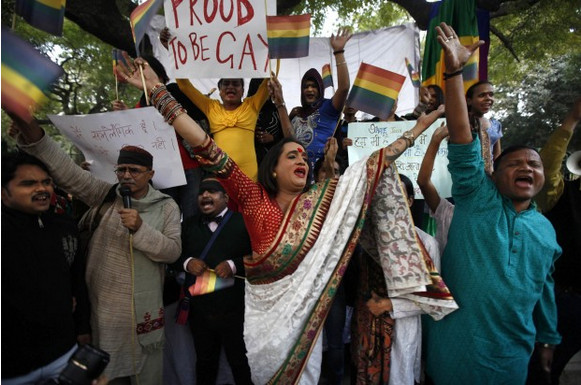India’s Supreme Court has recriminalized homosexuality after ruling on a case that the government had refused to appeal in 2009. In that case, brought by the sexual health NGO Naz Foundation, discrimination on the basis of sexual orientation was deemed unconstitutional. But on December 11, the Supreme Court said that the lower court had acted improperly. LGBT groups in the world’s largest democracy were “stunned.”
This month’s ruling reinstates a draconian statute from 1861—enacted when India was a colony of the British Empire—that lays down a 10-year sentence for “carnal intercourse against the order of nature with man, woman or animal.”
The Supreme Court ruled that only Parliament had the power to repeal the anti-discrimination law. The New York Times reported that there is virtually “no chance” that socially conservative lawmakers will do so.
“We are quite stunned. We didn’t expect this. Every trend—in everyday life, in court and jurisprudence–was pointing in the opposite direction,” Gautam Bhan, one of the case’s petitioners and a gay advocate in India, told The Times’ India Ink blog. “We’ve had a decision overturned that the Indian government did not appeal. It’s an astonishing kind of reversal.”
A coalition of gay advocates in India also expressed its disappointment. “By overturning the Naz Foundation judgment, the Supreme Court has, in one fell stroke again reduced LGBT persons to the status of what the Delhi High Court memorably called ‘unapprehended felons.’ The judgment of the Supreme Court is an unconscionable blow to the dignity of LGBT persons who…are entitled to equal treatment.”
Tushar Malik, a fellow with HRC’s Global Engagement Program, added in a statement, “India [is now] the 77th country worldwide criminalizing LGBT people. I will continue speaking out until we are no longer on that abhorrent list of 77.”


What Do You Think?